Alex and I are both truly humbled, touched and grateful for the honour of being asked to be Chatan Torah and Kallah Bereshit. We deeply appreciate the way the Sinai community has embraced and welcomed us. We are very thankful to Sally and Jonathan, for their guidance and patience with us throughout this process. We also greatly value this opportunity to give back to Sinai, even if just with our thoughts and readings, to a community that has given so much to our family. We recognize this as an opportunity to grow and stretch ourselves. Demonstrating to our children, and the community, that in Judaism, we value the continued effort to advance oneself through study. We have a calling to always broaden one's' self throughout life.
On Simchat Torah, we close with the book of Deuteronomy, when Moses blesses each of the tribes. He then ascends Mount Nebo, sees the Land of Israel, and dies at the age of 120. The Israelites mourn, and the portion ends highlighting Moses’ unparalleled greatness. And then, we form a circle by going back to the first book of the Torah, and we read Bereshit - “In the beginning” - where we read about creation. So, while today, we are reading - “the final chapter” and the “beginning chapter” - we are also completing a cycle. We are, in a sense, encircling and embracing the torah. We are reminding ourselves that we never finish our study of Torah. It is a continuous process of learning, growth and striving to deepen one's relationship with Torah and G-d. Each year we get a chance to see things in a new light, allowing us to grow and write our story.
After Moses died, the parsha states, “Now Joshua, son of Nun, was filled with the spirit of wisdom because Moses had laid his hands upon him; and the Israelites heeded him, doing as the LORD had commanded Moses” I think, that by saying “Moses laid his hands upon him,” - it means that Moses passed on knowledge. And this knowledge is still being passed on, throughout the generations, by teaching and studying Torah.
The Torah states, “Never again did there arise in Israel a prophet like Moses — whom the Lord singled out”. I would like to believe that means that “we” are ALL “singled out” in our own way to lead. Throughout time, great leaders have emerged. But what is a leader? Rabbi Sacks said “A leader must have courage and integrity. They must be able, say the sages, to relate to each individual according to his or her distinctive needs. Above all, a leader must constantly learn.... But these are necessary, not sufficient, conditions. A leader must be sensitive to the call of the hour – this hour, this generation, this chapter in the long story of a people.” When I reflect on this and other ideas of leadership - I ask myself: Is our inner calling to service, compelling us to help without the need for reward, is that our Sovereign summoning us to leadership?
In Deuteronomy, The land was promised, "This is the land of which I swore to Abraham, Isaac, and Jacob, 'I will assign it to your offspring.' I have let you see it with your own eyes, but you shall not cross there.” Was it the land that was promised or was it the idea of a promised land?
And why was Moses forbidden from entering the promised land? What was Moses’s sin? What could warrant the punishment of not entering the promised land? Not following directions, striking the rock and not talking to it? Was it his anger or brashness?
Judaism is not centred on a single person, who dominates our history. So why was Moses not allowed to enter the promised land? Perhaps we should ask, “What if Moses was allowed to enter the promised land? Would he have been elevated to a higher level and been looked upon as the Messiah?”. Would it have been the end of the story?
I think that the Israelites entering the promised land without Moses, was “The Beginning” of the Jewish people’s story, my story, your story, OUR story, that is interconnected by knowledge and study of Torah. Thus, the act of Moses not entering into the promised land, allowed for the next phase of the Jewish journey. Each year we continue the process of writing ourselves into history.
We cycle through the ritual of Rosh Hashanah, welcoming in a new year, and reflecting on the past. At Yom Kippur, we atone for the previous year’s transgressions, with the hope of being written into the book of life. During Sukkot, we shake the lulav and etrog, uniting the four species, spending time in the Sukkah. Then, we reach Simchat Torah, a time of joy. We dance with the Torah, it does not matter how learned we are, we are all equal. This is where we close out the year and start looking forward to writing our present narrative.
So, as the Torah cycle begins anew, now is the perfect time for each of us to search and decide, what is my story to be?
In Genesis, G-d created the universe and declared it good, as a new world with the sun and the moon was born. G-d created every kind of vegetation and then living creature, followed by human beings. In the Torah, it states: “They shall rule the fish of the sea, the birds of the sky, the cattle, the whole earth, and all the creeping things that creep on earth.” This is quite the task for us. When the Torah states that humans shall “rule” the earth, why do many interpret this as a license to exploit the land or it’s creatures? I interpret this as: “WE were, and still currently are, given an awesome responsibility, not as exploiters, but as caretakers and protectors.” We are directed to nurture this gift. To take care of ourselves, our families, our community, and all the creatures and the planet itself. To live in harmony, to cultivate, and to look after these creations, so that all of this may be here for future generations - so that they too, may write our narrative.
Each day going forward is an opportunity. Hillel states:
“If I am not for me, who is for me;
and if I am only for myself, what am I.
And if not now, when?”
So now, we invite you to ask yourselves, “how can I make a difference”? Every journey starts with the first step, first decision, first action. We do not need to understand or write the final chapter. We just need to begin. We continue to review Torahs’ words and find meaning in today’s life. So we ask, what do you want to write? How do you want to be remembered?
What can I do, what can you do, what can we do together?
Toda Raba. Chag sameach!

